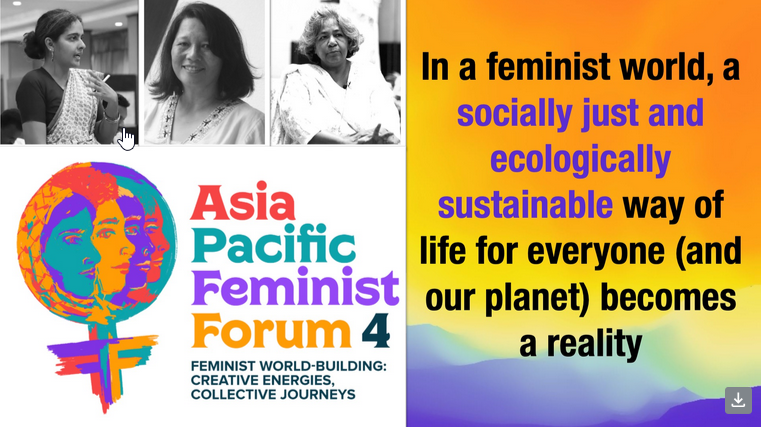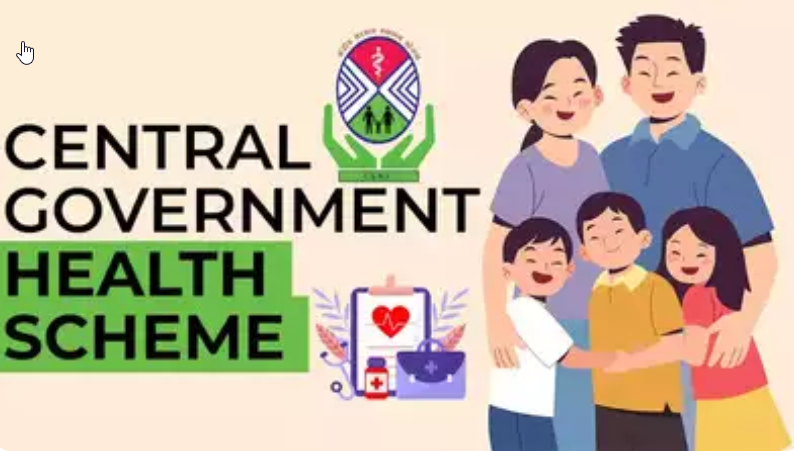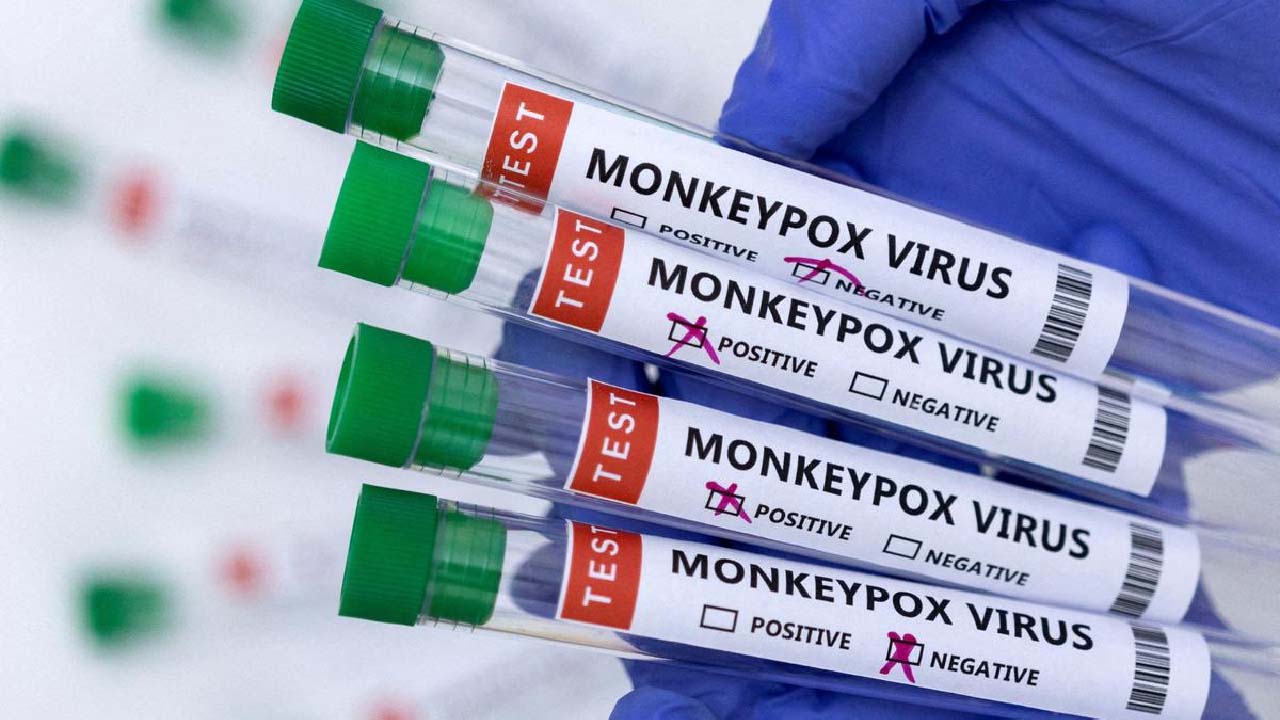Recently, over 500 feminist leaders from 38 countries across Asia and the Pacific region gathered in Chiang Mai, Thailand at the 4th Asia Pacific Feminist Forum (APFF 2024) to deliberate upon their collective journeys for building a world that is free of patriarchy, corporate capitalism, imperialism and colonialism, militarism and religious fundamentalism.
A feminist fossil-fuel free world is one where development justice is a reality for everyone. In other words, in a feminist world, a socially just and ecologically sustainable way of life for everyone (and our planet) becomes a reality.
They analyzed the current systemic and structural oppressive forces behind injustices prevailing in the region; envisioned a feminist world that is free, just and able to support all of us on this planet, leaving no one behind; and explored the strategies needed to create such a feminist world order based on the development justice model.
Where are we today?
Over the last 40 years or so, the global economic and political system dictated by corporate capitalism has defined a development model that has channeled wealth, power and resources from the working peoples to the rich (less than 1% of global population), and from developing countries to a few wealthy countries. It has increased forced labour migration and caused finance, environment, food and energy crises which continue to devastate lives in the Global South.
Corporate capture is abetted by militarism
Azra Talat Sayeed, a firebrand development justice activist and Executive Director of Roots for Equity, calls corporate capture to be akin to imperialism. Imperialism is defined as a state policy and practice of extending power and dominance especially by territorial acquisition or by gaining political and economic control of other areas. And this is exactly what corporations do- they get hold of our resources, our markets and the people.
For Azra, out of the two aspects of imperialism - economic control and militarism- the latter is the key issue confronting us today. "Militarism is used as a social tool to extend territory and gain strong economic and political advantages. An unholy alliance between military of the state, the state’s bureaucracy and the defense corporations guides government policies. But we rarely talk about the defense corporations and/or the defense industry. These defense corporations are minting a lot of profit from killing people, and looting our communities," points out Azra.
In fact as per a report, revenue earned by the top 25 defense corporations in 2022 was USD 407.8 billion.
Latest data published by the Stockholm International Peace Research Institute shows that total global military expenditure reached US$ 2.4 Trillion in 2023 - an increase of 6.8% from 2022. This was the steepest year-on-year increase since 2009. The 10 largest spenders in 2023—led by the United States, China and Russia—all increased their military spending.
Compared to this, UN’s regular and peacekeeping budget for 2023 was US$ 3.4 billion which is a mere 0.15% of US$ 2.4 Trillion. Another point of interest is that USA, UK, and France which are among the top 10 military spenders, are also members of the UN Security Council, NATO (North Atlantic Treaty Organisation) and the most powerful of the G7 countries.
Azra rues that, "How can we think of having peace, when these countries are reflected in the peace keeping measures as Security Council members. Everybody talks about violence, but nobody talks of the violence of corporations, of militarism, of imperialist countries."
She advises that feminist research needs to focus more on the defense industry and related issues, which unfortunately is not happening now.
The debt crisis
Developing countries are facing the worst debt crisis in history with a growing and high cost of external debt. Asia and Oceania hold 27 % of global public debt. Overall, a total of 3.3 billion people live in countries that spend more on interest payments than on either education or health.
According to the Global Sovereign Debt Monitor report, in 2024, countries in the Global South have to make more debt service payments to their external creditors than ever before. For 45 countries, more than 15% of government revenue flows into debt servicing. Due to high debt service payments, many countries are struggling to service their debts resulting in their cutting back on investments in health, education, social protection, and climate change measures.
Calling the debt crisis as yet another frightening manifestation of corporate capture, Sarala Emmanuel, founder member of the Feminist Collective for Economic Justice, Sri Lanka, points out debt services are absorbing around 45% of the budget revenues of 144 developing countries on paying back their creditors, and of the 32 countries with the heaviest debt service burdens compared to revenue, 10 countries are in Asia.
Who holds these debts?
Multilateral organisations, including the World Bank, hold 46% of the debt of countries who were eligible for debt service suspension initiative of the World Bank; commercial creditors hold 19.5% and bond holders hold 13%, shares Sarala.
She cites the example of her own country: “Sri Lanka is facing a severe economic crisis and has signed its 17th agreement with the International Monetary Fund (IMF), obtaining a loan of US$ 3 billion for a period of 48 months.The Sri Lankan Parliament has passed the economic transformation bill in July this year, to implement severe austerity measures as part of the loan’s conditionalities. By passing numerous legislations that have enshrined IMF diktats, the government has curtailed the rights of its citizens to decide their own economic future. The current state of affairs is one of systemic discrimination and exploitation and reduces workers to bonded labour. Meanwhile under the guise of domestic debt structuring, the retirement pensions of working class have been reduced. The collusion of elite class interest with international lenders has never been so explicitly visible than under the current government."
She wonders, that how, under the current debt scenario, can one make the government realise that public services like free healthcare, education and universal social security nets are imperative for society and that austerity measures curtailing them will only perpetrate an endless cycle of crisis.
Religious fundamentalism
For Zainah Anwar, a women’s rights activist from Malaysia and co-founder and Chairperson of Musawah, the world today is even less democratic and less safe than what it was a decade ago. The current ground realities have debunked the development theory that as countries develop and modernise, religion becomes less important in the public sphere of governance and policy.
She cautions against the rise of religious fundamentalism in countries and the hegemony of these despotic voices to abuse religion for political gain to perpetuate power, privilege and authority.
"The fact is that many of us in the Global South do not live in countries where there is a separation of religion and state, let alone religion and politics. The reality is that we live in countries where religion- in this particular context - Islam, is the source of law, and public policy," said Zainah.
"We continue to see the rise of anti-democratic forces, anti-gender equality forces, conservative and fundamentalist actors, and in particular those who use religion, culture, and tradition to sustain the patriarchal and discriminatory agendas. These actors seek to demonise human rights, women's rights, sexual and reproductive health and rights, and rights of gender diverse communities. They frame our demands for justice, equality and non-discrimination as anti-national and a threat to society, and to family values, and are calling back achievements in law reforms made in earlier decades," added Zainah.
“What is worse is that most of the world leaders display no political will and courage to confront this anti-rights forces - in fact many are in unholy alliances with them. They benefit from the power of mobilisation, and politics of hate and exclusion, perpetuated by these forces in a world troubled by inequality, injustice, and uncertainty," rightly said Zainah.
Economic growth versus gender justice in South Korea
South Korea ranks as the 14th largest economy in the world and the 4th largest in Asia. However, Kyungjin Oh, Executive Director of Korea Women’s Associations United, sees the current neoliberal policies of the country as a threat to women's rights, which are being ignored in the development agenda of the country.
"Despite all the positive global images of my country, we are still struggling with deep rooted gender-based discrimination and violence, and growing voices from backlash groups. While there have been strong women’s movements in the country, there has also been a growing anti-feminist sentiment. South Korea’s current President Yoon Suk-Yeol took office in 2022 with the support of such backlash groups with anti-feminist agenda. During these two years of his Presidency, he has taken numerous regressive steps impacting women’s rights. One of his first actions, after attaining power, was to abolish the Ministry of Gender Equality, stating officially that there is no gender discrimination anymore in the Korean society. Since then, there have been severe cutbacks on gender equality policies, especially the project on support for protection of victims of gender-based violence."
Kyungjin Oh categorises these regressive steps as delegitimising the value of women's rights and women’s progressive movements.
Rising power of the gender binary ideology and fundamentalism is another negative outcome. “Anti-rights groups and ultra-conservative politics are trying to expand alliances for the value of traditional family norms under the frame of intersecting life, family and nation. The role of women is being emphasised 'as having a child and doing domestic care'. And women who do not conform to these traditional family norms- like unmarried women, gender diverse groups- are stigmatised as not contributing to the country’s development," she said.
Growing militarism is also being used as a weapon to attack women’s rights in South Korea. As the country tries to increase its military presence in east Asia, under the frame of national security, military spending is prioritised over the spending on women and social welfare systems. Anti-feminist sentiment among young men is getting stronger, who see women as those who only claim their own rights, without fulfilling the national obligation of compulsory military service. There have been severe cuts for women in marginalised groups. More than 50% of women are in irregular employment and in many cases the wage gap is more than 30%- which is the highest among all OECD countries. 50% of old women are living in poverty.
This is the first article as part of CNS trilogy series on envisioning a feminist world that is free, just, and able to support all of us on this planet.

 This is the first article as part of CNS trilogy series on envisioning a feminist world that is free, just, and able to support all of us on this planet.
This is the first article as part of CNS trilogy series on envisioning a feminist world that is free, just, and able to support all of us on this planet.






.png)













.jpeg)


.jpeg)
.jpeg)
.jpeg)
_(1).jpeg)

_(1)_(1)_(1).jpeg)
.jpeg)
.jpeg)
.jpeg)








.jpeg)
.jpeg)